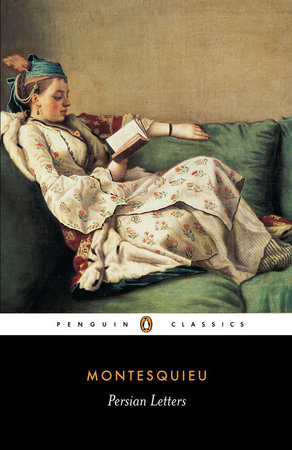The Persian Letters

This richly evocative novel-in-letters tells the story of two Persian noblemen who have left their country—the modern Iran—to journey to Europe in search in wisdom. As they travel, they write home to wives and eunuchs in the harem and to friends in France and elsewhere. Their colorful observations on the culture differences between West and East conjure up Eastern sensuality, repression, and cruelty in contrast to the freer, more civilized West—but here also unworthy nobles and bishops, frivolous women in fashion, and conceited people of all kinds are satirized. Storytellers as well as letter-writers, Montesquieu’s Usbek and Rica are disrespectful and witty, but also serious moralists. Persian Letters was a succès de scandale in Paris society, and encapsulates the libertarian,…
Charles-Louis de Secondat was born in 1689 at La Brède, near Bordeaux, into an eminent family of parlementaires. His mother died when he was ten and Charles-Louis was sent to Paris to be educated and completed a law degree in Bordeaux in 1708. He returned to Paris in order to finish his education, staying until his father died in 1713. In 1714 he became a councilor at the Bordeaux Parlement and a year later married a Huguenot lady, Jeanne de Lartigue, probably for her money. They had three children. A year after their marriage Charles-Louis inherited the barony of Montesquieu and the post of président à mortier at the Bordeaux Parlement and five years later, in 1721, he published anonymously…
